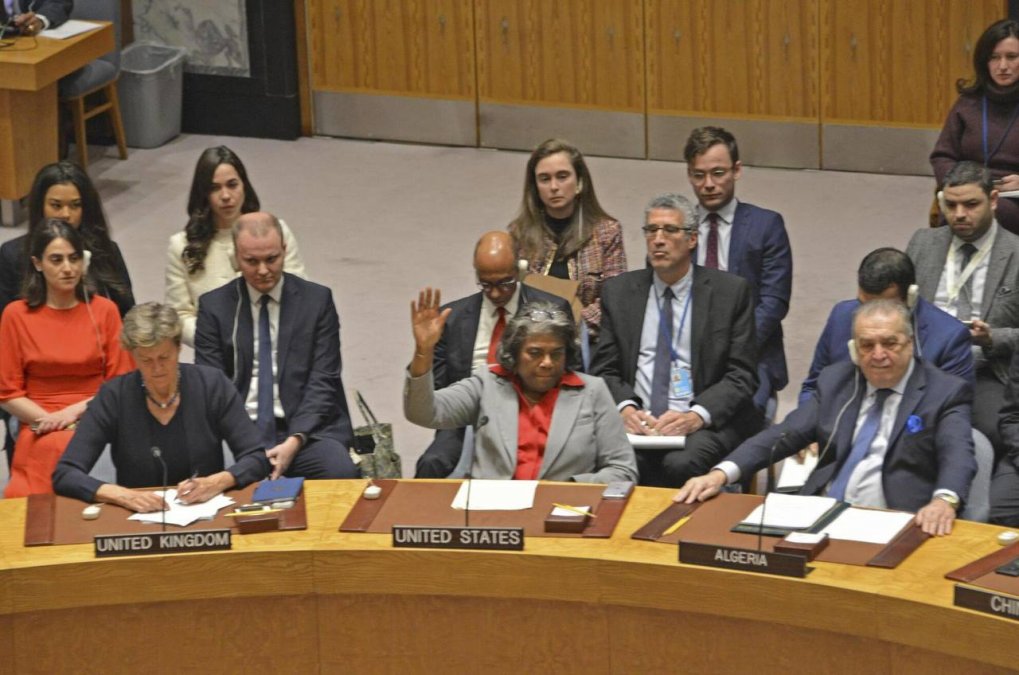Silence of America and Israel’s dissatisfaction
America’s abstention vote on the resolution
The silence of America and Israel’s dissatisfaction. America abstained from voting, and the United Nations approved the ceasefire resolution. Netanyahu is angry, but in reality, this is Washington’s final and definite message to him. With 14 votes in favor and one abstention from the United States, the ceasefire resolution between Israel and Hamas presented by Mozambique was approved. This is a historic event as it puts an end to the deadlock and crossroads between Washington, Moscow, and Beijing after more than five months and over 32,000 deaths.
Rumors about this event had been circulating for days, and after weeks of debate, arguments, and diplomatic rudeness, Israeli Prime Minister Benjamin Netanyahu had activated a warning bell in response to the remarks of Kamala Harris, the US Vice President, who said, ‘I don’t reject anything.’ This turn of events occurred on the afternoon of March 25.
At the very moment Washington decided to abstain from voting and thus did not veto a resolution presented as an immediate ceasefire for the month of Ramadan, hoping that this resolution could lead to a lasting and sustainable ceasefire and immediate and unconditional freedom for all hostages, knowing that this resolution does not mandate the suspension of hostilities at this stage.
American diplomats explained that the decision to abstain is because the text differs from Washington’s position as it does not explicitly condemn the Hamas attack on October 7, but it does not indicate a change in the US policy and position on the conflict. However, this is the most serious action it has taken against its historical ally and clearly exposes Israel’s complete isolation on the international stage for the first time.
Rafah is the breaking point.
The US abstention is not a positive vote but rather a cautious political choice in the current circumstances. For months, news of dissatisfaction, despair, and increasing rift between the White House and Israeli Prime Minister Netanyahu over how the war in Gaza was conducted, including the killing of civilians, sanctions on essential food and supplies, and the bombing of hospitals and infrastructure, were heard.
The reason that pushed Washington towards changing course, besides increasing international pressures, is primarily the strong will of the Israeli leader to carry out a military strike in Rafah. As I have written in a previous note, this signifies the attack of the most powerful and advanced army in the region and among the world’s first armies on a city of tents with a population of one million and three hundred thousand refugees who suffer from severe food shortages, enduring hardship and hunger.
The operation, within the current humanitarian crisis and in the absence of a plan to evacuate non-combatants or a post-day project, as warned by UN agencies, will be nothing less than an ethnic cleansing. Israeli Prime Minister’s delayed reaction to the US abstention vote, Netanyahu spoke of a mistake that favored Hamas and prevented an Israeli delegation from going to Washington.
The United States hopes that after sending a clear signal, by exerting influence on other members of the Israeli cabinet, it can steer the Israeli military formations back to milder recommendations. Israeli Defense Minister Ya’alon is currently visiting Washington and was scheduled to meet with Jake Sullivan, US National Security Advisor, Secretary of State Antony Blinken, and Defense Secretary Lloyd Austin.
Is the resolution binding?
Antonio Guterres, the Secretary-General of the United Nations, said that the resolution must be implemented, and failure to do so is unacceptable. His remarks led to confusion and debate moments later, when shortly after the vote in the Security Council, US Ambassador Linda Thomas-Greenfield stated that the approved resolution is not binding and subsequently explained that it does not fall under Chapter VII of the UN Charter.
This position caused confusion among diplomats and journalists present, and the representative of South Korea also reiterated it in a press conference. However, the Ambassadors of Mozambique along with their colleague from Sierra Leone, Michael Kano, and the Ambassador of Malta, Vanessa Frazier, quickly rejected the US representative’s statements and reminded that all Security Council resolutions are always binding under the UN Charter.
The interpretation by American authorities was objected by other Council members and several international law experts, as they believe that these statements will not make the resolution binding, but rather weaken its effectiveness. The confusion surrounding the effectiveness of this action reveals a disturbing reality, even if the resolution is binding and Israel is forced to comply with it.
This is just a general and theoretical principle and is completely different in practice, as Israel has violated several UN resolutions in the past without any consequences. Netanyahu has previously stated through his foreign minister that the war will not end here.
A message to Netanyahu
The consequences of this request for a ceasefire, even if not fulfilled and ignored, could go far beyond the UN headquarters. Currently, the gap between Netanyahu and Joe Biden is making headlines in many Israeli media outlets, and many analysts indicate that if the Israeli Prime Minister refuses to implement this resolution, the United States can suspend military aid to the Jewish state, a decision that prominent Democrats have been calling for for a long time.
Ben Caspit described the approach of the Israeli Prime Minister in the Hebrew-language newspaper Maariv as delusional, insane, and terrifying, adding that this man puts all of us at risk, our future, the future of our children, and the strategic alliance that is the cornerstone of Israel’s security. An article in the left-wing newspaper Haaretz describes Netanyahu in a very harsh tone as the agent of Israel’s destruction, which has become a burden on the country.
It seems that the request for the resignation of the Prime Minister and holding early elections, even if raised outside the media, will not only not dissatisfy his American ally but may even be indirectly welcomed by them.
This is not the first time Netanyahu has angered the White House; he has done so regularly since his first term as Prime Minister in 1996. However, the challenge between the two old allies has never been as prolonged as it is today, as no crisis between the two countries has been as serious as the current crisis caused by the war in Gaza.
The UN Security Council resolution, passed with a firm US abstention, calls for an immediate humanitarian ceasefire to facilitate the exchange of Israeli and Palestinian hostages. The aim is to turn it into a permanent ceasefire to pave the way for a political solution to end the conflict, though it is unlikely to happen soon as Israelis and Hamas have been engaged in negotiations for months with American, Qatari, and Egyptian mediation to achieve a ceasefire.
Even if a ceasefire agreement is signed one day, it will definitely not be implemented due to the imposition of the Security Council. The history of diplomacy is full of ignored resolutions of the United Nations, especially in the Middle East, because of the will and desire of key international players.


